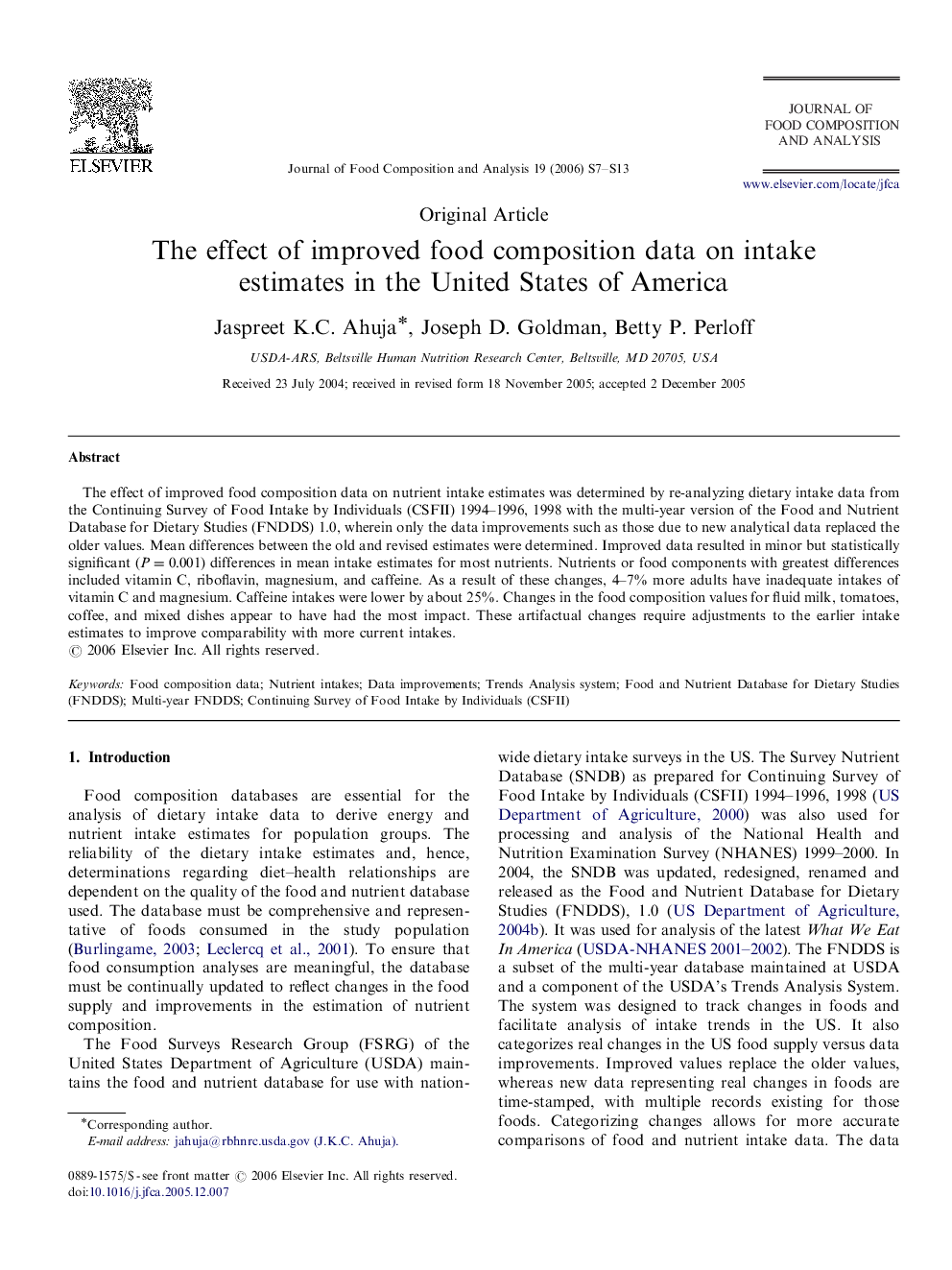| Article ID | Journal | Published Year | Pages | File Type |
|---|---|---|---|---|
| 1219406 | Journal of Food Composition and Analysis | 2006 | 7 Pages |
The effect of improved food composition data on nutrient intake estimates was determined by re-analyzing dietary intake data from the Continuing Survey of Food Intake by Individuals (CSFII) 1994–1996, 1998 with the multi-year version of the Food and Nutrient Database for Dietary Studies (FNDDS) 1.0, wherein only the data improvements such as those due to new analytical data replaced the older values. Mean differences between the old and revised estimates were determined. Improved data resulted in minor but statistically significant (P=0.001P=0.001) differences in mean intake estimates for most nutrients. Nutrients or food components with greatest differences included vitamin C, riboflavin, magnesium, and caffeine. As a result of these changes, 4–7% more adults have inadequate intakes of vitamin C and magnesium. Caffeine intakes were lower by about 25%. Changes in the food composition values for fluid milk, tomatoes, coffee, and mixed dishes appear to have had the most impact. These artifactual changes require adjustments to the earlier intake estimates to improve comparability with more current intakes.
